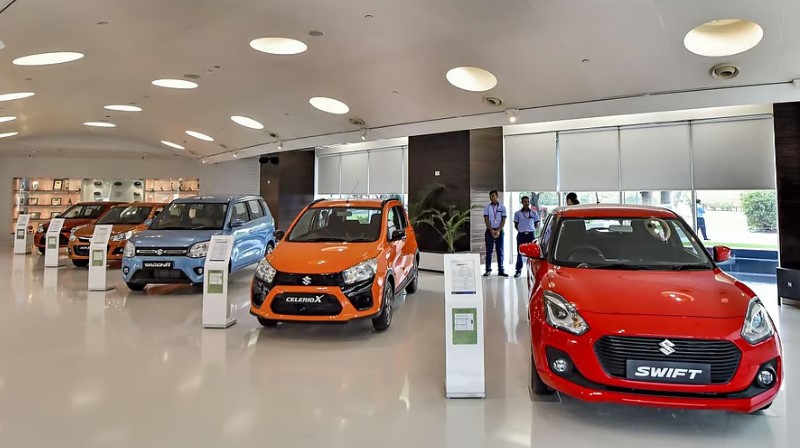
Maruti Suzuki Eyes Alternatives Amid Rare Earth Magnets Shortage
Rare earth magnets, vital for modern automotive components, are now at the center of a global supply concern—prompting leading Indian carmaker Maruti Suzuki to explore multiple solutions to maintain seamless production. As China tightens its grip on rare earth exports, industries worldwide are recalibrating their strategies to mitigate disruptions.
In a statement issued on Thursday, Maruti Suzuki India confirmed that while there has been no immediate impact on manufacturing, the company is actively monitoring the evolving scenario. “There is a lot of uncertainty and the situation is continuously evolving,” the automaker noted. “We are pursuing multiple solutions to ensure continuity in our operations.”
Table of Contents
ToggleThis proactive approach comes in response to China’s recent move, effective April 4, that enforces special export licences on seven rare earth elements and related magnets. These restrictions threaten to slow global access to critical raw materials essential for automotive and electronics sectors, especially in the electric vehicle (EV) space.

Why Rare Earth Magnets Matter
Rare earth magnets are primarily used in permanent magnet synchronous motors (PMSMs), a key component in EVs due to their ability to deliver high torque, energy efficiency, and compact size. Additionally, hybrid vehicles rely on these magnets for efficient propulsion systems. Even traditional internal combustion engine (ICE) vehicles aren’t immune, using rare earth magnets in electric power steering, braking systems, and other motorized mechanisms.
The rare earth elements affected include samarium, gadolinium, terbium, dysprosium, and lutetium—materials also used in smartphones, clean energy solutions, and missile technology. With China controlling over 90% of global rare earth processing, any restriction from Beijing poses a considerable challenge.

Industry-Wide Ripples
India’s automobile sector has already approached the government, seeking support in expediting approvals for rare earth imports from China. Stakeholders warn of potential delays in EV production lines, which could stifle momentum at a time when the country is pushing aggressively toward clean mobility.
The shortage is not just a domestic concern but a global one. As nations strive for EV adoption and transition to green energy, the demand for rare earth magnets is soaring. Supply constraints could significantly impact production timelines and costs for manufacturers across the board.

Maruti’s Forward-Looking Strategy
As India’s largest passenger car manufacturer, Maruti Suzuki’s response will serve as a benchmark for the industry. While the automaker has not revealed specific contingency plans, its reassurance of “no disruption” signals robust supply chain preparedness.
Industry experts believe that automakers like Maruti may explore options including:
Sourcing from alternative countries such as Australia or Vietnam
Investing in R&D for magnet-free motor technologies
Partnering with local startups and global suppliers to develop substitute materials
Such strategic pivots could help reduce dependency on a single-source nation and make the auto sector more resilient to future geopolitical shocks.

A Wake-Up Call for India’s Supply Chain
The rare earth magnet crisis underscores the need for India to diversify its import sources and develop local refining and processing capabilities. The government has already identified rare earths as strategic materials and is evaluating policy interventions to build domestic reserves and manufacturing capabilities.
With electric mobility gaining traction and India aiming to become a global hub for EV production, securing a stable supply of rare earth magnets will be critical. Industry experts also emphasize the importance of long-term trade agreements, increased private sector investment in mining, and technology transfer partnerships with rare earth-rich nations.
What’s Next?
While the Indian government is yet to announce a formal response, insiders suggest that high-level consultations involving the Prime Minister’s Office, Department of Economic Affairs, and Department of Financial Services are underway to evaluate the implications and draft a mitigation roadmap.
For now, companies like Maruti Suzuki are staying ahead of the curve—by being transparent, proactive, and flexible. Their ability to adapt to this rare earth magnet challenge may not only determine their short-term production success but also define their long-term standing in India’s clean mobility future.
Bangladesh Exit T20 World Cup 2026 as ICC Impasse Deepens
In a historic first for Bangladesh cricket, the nation will miss the ICC Men’s T20 World Cup 2026, ending a streak of …
IND vs NZ ODI: Virat Kohli’s Century Steals Indore Spotlight
Virat Kohli once again stood tall on the big stage, delivering a breathtaking century that lit up Indore and reminded the cricketing …
KL Rahul: Emerging as India’s New Wall in Modern ODI Cricket
KL Rahul: Emerging as India’s New Wall in Modern ODI Cricket KL Rahul is quietly carving out a reputation as […]
India vs USA U19 World Cup 2026 Live: IND Begin Campaign
India vs USA U19 World Cup 2026 Live: India Begins U19 World Cup 2026 Campaign Against USA Under Cloudy Bulawayo […]
ChatGPT Health: Powering the Next Era of Digital Health
OpenAI Launches ChatGPT Health: A Secure AI Platform to Review Medical Records and Empower Personal Healthcare OpenAI has officially introduced […]
Acer CES 2026 Unveils Predator & Nitro Gaming Laptops, AI PCs
At the Consumer Electronics Show (CES) 2026, Acer made a strong statement by expanding its presence across gaming, artificial intelligence computing, and …








